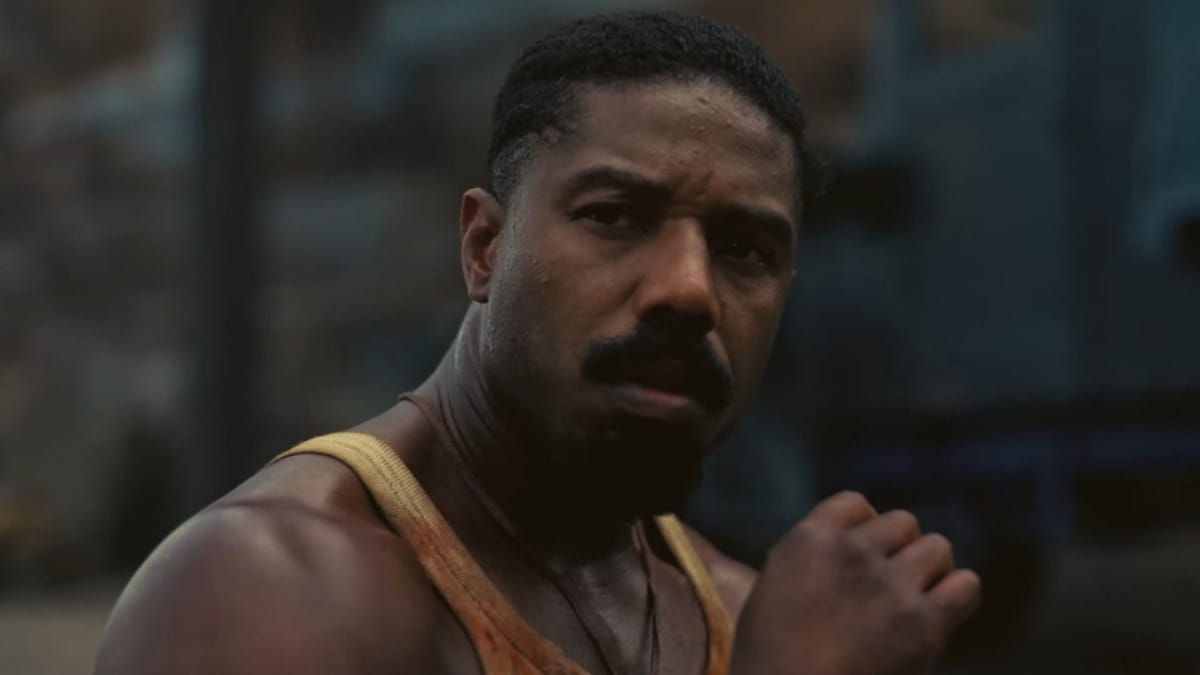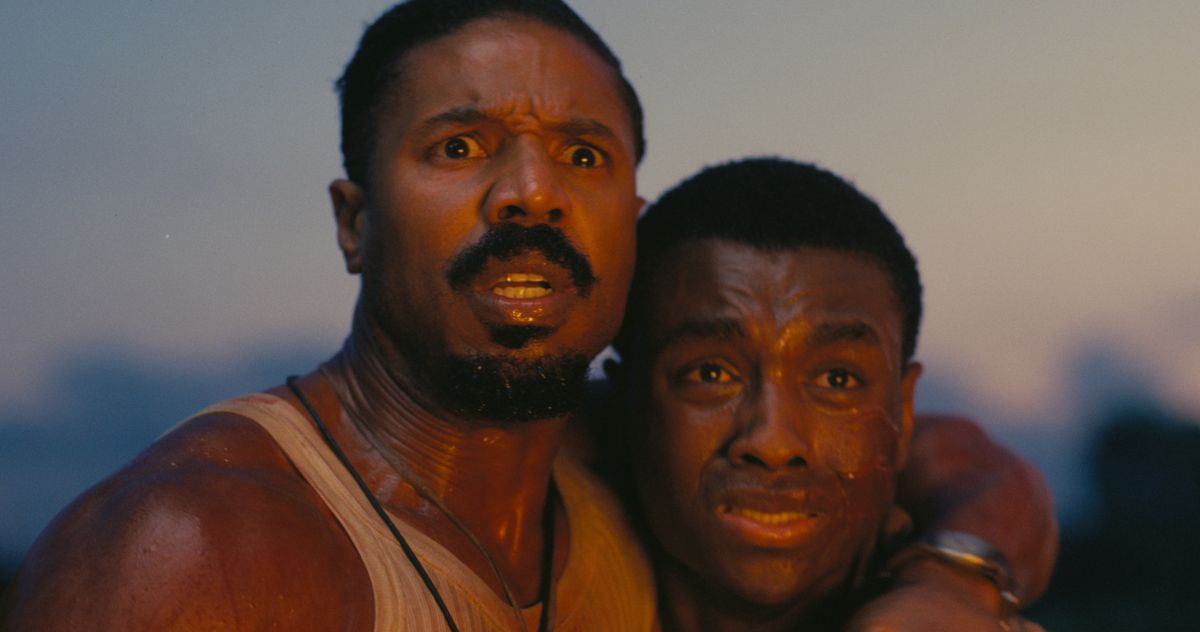Cooglertown

This past weekend, Ryan Coogler's original Southern horror film Sinners opened to pretty solid reviews, pretty solid audience reactions, and $61.5 million in global box office sales. For Warner Brothers, who has delivered such big budget flops as Furiosa and Joker: Folie à Deux in the past year, this is welcome news.
While WB can celebrate this win in the short term, it's Ryan Coogler who has secured a long term win for his legacy, earnings, and artistic autonomy.

With WB negotiating from its heels, Coogler was able to negotiate an incredibly artist friendly deal for this movie. Here are the four key concessions WB made to Coogler in this extraordinary deal:
- $90 million for the script
- Full control over the final cut of the film
- Percentage earnings on the gross profits of the film, not the net (Often in other deals directors may receive some percentage of the profits after the movie has broken even via box office sales)
- Lastly, and most notably, a full reversion of the ownership of the film back to Coogler after a period of 25 years
While several other directors have been able to negotiate for some combination of the first three things here, the ownership reversion is extremely rare. The most recent known instance of this is Quentin Tarantino's agreement with Sony regarding his film Once Upon a Time in Hollywood (2019) reverting back to him after 30 years.
Why it's so rare
“The lifetime, long-term value of our film properties is what makes a studio a studio. It’s why David Ellison wants to buy Paramount. It’s how MGM sold for $8 billion. Things like licensing and windowing these films throw off hundreds and hundreds of millions of dollars a year globally."
Television and film is a "long tail" business. What this means is that the majority of money typically made on a show or film is made soon after release. Think box office sales or television advertising. But, by holding onto ownership of an extensive backlog of IP, you can generate new modes of income based on old properties long after they have been released. This is why we get so many reboots, theme park rides, and subscription services. The Office was very successful at the time it was released, and likely made NBCUniversal a boatload of advertising, physical media, and licensing dollars. Because they retain ownership 20 years after that show debuted, they are able to convert that into subscriptions to their streaming service, Peacock, further gains from syndication on other networks, and so forth.
If by some stroke of prescient genius, master negotiating skills, and tectonic shifts in industry precedent Greg Daniels and Mike Schur were able to retain ownership of the show instead of NBCUniversal monetizing their IP Daniels and Schur would be able to.
This is, to say the least, not how this typically works. The entire existence, as the exasperated yet anonymous executive quoted above relates, of the modern entertainment industry relies on artists making things for studios who then market and distribute the work. If the artists make the work and get to keep it even after the studio does all that work, an imbalance is created.
So not only are deals like this extremely rare, in the instances in which they do happen, as with Coogler or Tarantino, they are made to convert decades following release. The studios are basically pushing their ownership of the IP as far out as possible to maximize the amount of time they can earn off of it.
The existing system of ceding ownership from the artist to the studio is not inherently predatory or exploitative, but has been used in these antagonistic ways in the past. Which, generally, is why unions exist. In negotiating a deal like this, Coogler is flexing his leverage a bit and, if just for one movie at one time, getting an exceptionally artist friendly deal.
What it could mean for Coogler
While 25 years might seem like a long time, there are several Hollywood directors who have had careers spanning twice that. At the end of all of this, Coogler could actually spend the majority of his career maintaining full ownership over this movie. But what does that even mean? And what benefits could it provide?
Predicting what media consumption will be like in 25 years is basically useless. There is no telling what kind of entertainment landscape we'll be dealing with then. But in basically all ways, retaining ownership provides Coogler with more flexibility and potential income streams than would exist if Warner Brothers hung onto the film.
It is fairly safe to assume that there will be some sort of transactional relationship between artists and audiences in two and a half decades. Right now, there is not a lot of flexibility for creators in this process. In order to play the game, your work has to be controlled by one of the studios who do the marketing and distribution. We can observe this tension when movies are "incorrectly" marketed, like when their trailers don't adequately represent the tone, characters, or central conflict of a movie. In 25 years, whatever marketing or distribution look like, Coogler gets to decide how his old movie gets treated in that future landscape. Even just this flexibility is a huge benefit to a creator.
But the most obvious benefit to retaining ownership comes in monetization. Right now, Warner Brothers is probably cutting deals with domestic and international streamers for the streaming rights to Sinners. They could be meeting with television networks to show the movie on TV during the upcoming Halloween season. I'd be surprised, but they could be sketching rough ideas for themed rides and attractions based on the movie. All of these deals may or may not involve Coogler, and the money they make may or may not reach him. In the future version of these negotiations, it is Coogler who gets to decide the paths of monetization, and him who would earn from whatever deals are made.
For a dash of tech analysis, this means that Coogler could protect his movie from being used in the training of artificial intelligence or, more likely, control the litigation against someone who infringes on his copyright to do so.
What it could mean for the industry
Frankly, I think it won't mean much. While the anonymous executive in the Vulture article screams of falling skies and end days, I think it is extremely unlikely that this one deal stokes a dramatic shift in artists' behavior toward their studios.
Coogler was in an extremely unique scenario. WB was looking to mend relationships with artists, he's directed massive budget/big IP hits, and has garnered near universal critical acclaim. Not every director can match these things with his strong industry reputation or excellent legal representation.
Fundamentally, the studios have an enormous advantage for "the future" than individual artists have. It is the studios, with their capital investment and broad economic outlook, that can not only predict the future of media business models, but also create the future of media business models. These macro-economic advantages could render Coogler's ownership in 25 years basically meaningless, as industry norms for monetization or distribution could drastically change.
In the end, it is extraordinary that Coogler was able to secure this bag, and I hope that his example serves as inspiration to future writers/directors to push for more. As the means of distribution have become more democratized, I think it is only natural that the means of monetization should as well.






